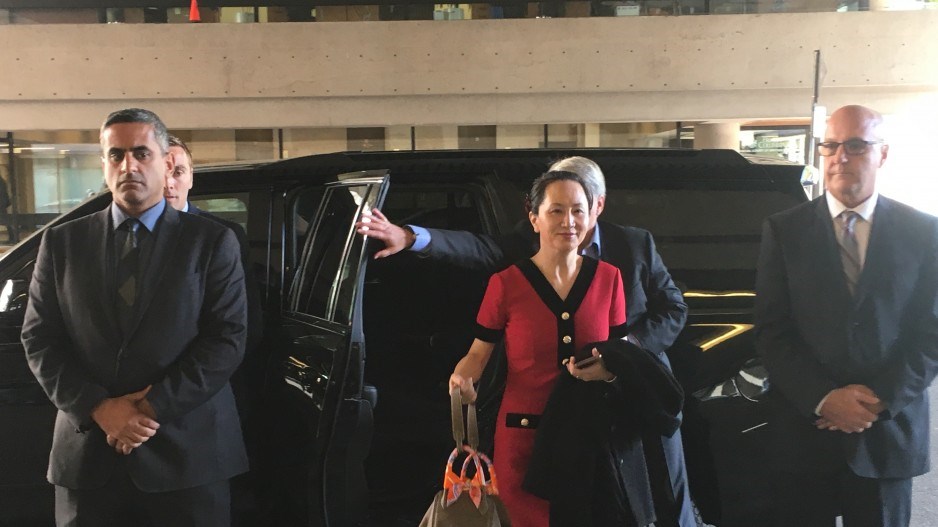One of the top Canada Border Services Agency officials at the Vancouver International Airport at the time of Meng Wanzhou’s arrest admitted a mistake was made in the official’s legal Will Say in that the CBSA official did talk to an FBI legal attache on the day before the arrest, the court heard this morning.
CBSA Chief of Passenger Operations at YVR Nicole Goodman said under cross-examination of defence lawyer Mona Duckett that her Will Say – legal documentation summarizing a person’s testimony – mistakenly said Goodman did not have any contact with FBI officials before Meng’s arrest in Vancouver on Dec. 1, 2018. Goodman, however, maintained that the contact was limited to one phone call on Nov. 30, and no improper planning or information transfer took place.
“I’m very clear that I’ve only spoken with her [the FBI legal attache in Vancouver] that one time,” Goodman told Duckett despite the latter pressing on the fact that the CBSA official did not keep a single note on her involvement in the Meng case – requiring her to recreate her testimony of what happened in December 2018 more than a year later from just memory and some e-mails on file.
“It’s hard to remember after almost two years, isn’t it?” Duckett asked Goodman regarding her recollection of the Meng arrest. “From what did you refresh your memory for your Will Say? You didn’t taken a single note.”
Goodman replied that note-taking was difficult because almost all communication were via phone on her part, and the parts that are not were mostly e-mails that were then documented.
She also noted that some notes may have been helpful in hindsight, but she would not have done anything differently at the time of the arrest because it was normal and routine.
“In the moment, when I’m with my team, I’m not taking notes,” she said, noting thousands of people usually go through customs at YVR at any given time prior to the COVID travel restrictions. “I don’t know how to explain this, but it’s a regular, routine [occurrence] to have up to 16 secondary exams going on at any given time. So I regularly get calls on updates on what’s happening... This is a regular day, and I don’t take notes on these items.”
Duckett fired back quickly on the notion that an attempted coordination by the FBI with the RCMP and the CBSA – as e-mail correspondences indicated – were considered normal.
“This coordination by the FBI – this attempt by the FBI to coordinate – that’s a routine occurrence?” She asked.
“I’m sorry you keep going back to the coordination of the FBI,” Goodman responded. “I was not coordinating with the FBI; and whatever the FBI was doing with the RCMP, I don’t know what was happening there.
“All I can tell you is that I got a call about a provisional arrest warrant, and I got a call from the RCMP that indicated that – if this arrest warrant was approved – then there was likely to be an exam on criminality based on whatever the warrant is for, and we would have to process this person. I’m dealing with the person in front and me, and we are processing them.”
Duckett also pressed Goodman on her knowledge of whether the CBSA had the power to execute and serve an arrest warrant when it comes to Extradition Act matters – as it was with the Meng case. Goodman replied that she did not do formal research on CBSA policy on this issue, but added that in her operational experience, the protocol is always to defer the serving of the warrant to the agency ordered to carry it out – in this case, the RCMP.
“If the RCMP were there, they would serve it because it was a criminal matter,” Goodman said.
Meng, the CFO of Huawei Technologies Co. Ltd. and daughter of company founder Ren Zhengfei, is facing fraud and money-laundering charges in the United States in relation to the firm’s operations in countries like Iran and North Korea. There have been reports that the U.S. authorities and Meng have begun negotiating a plea deal late last week, but little else has developed on that front (with the extradition hearings continuing this week and next).




